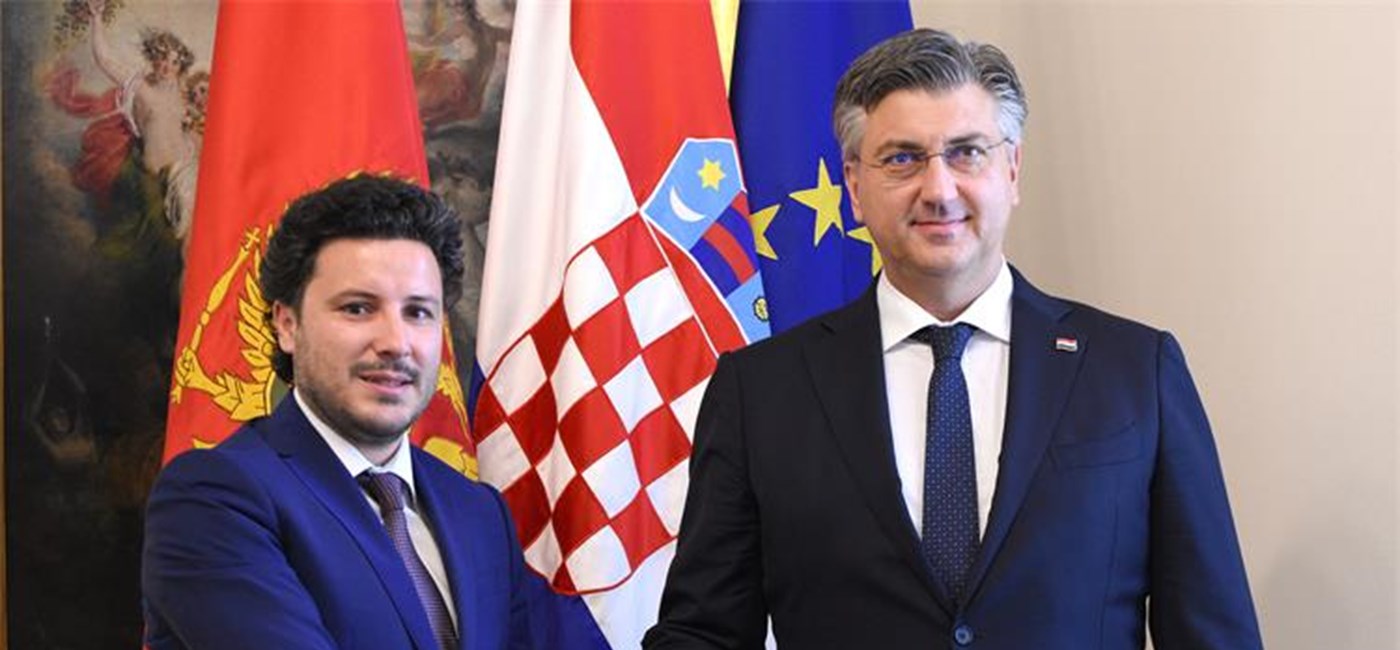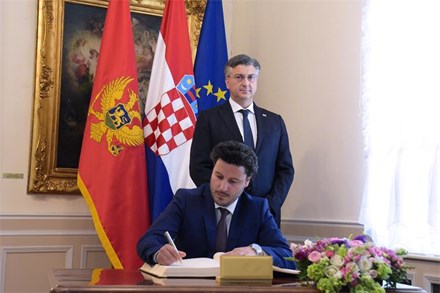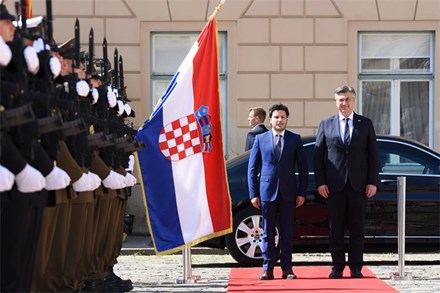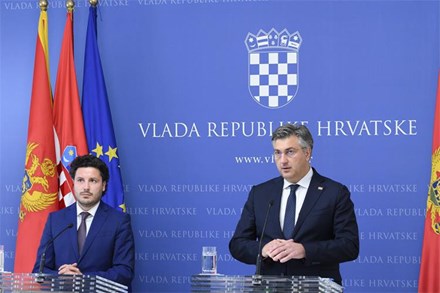Plenković added that the two countries are working on strengthening economic cooperation and resolving remaining outstanding bilateral issues.
Prime Minister Abazović arrived on Tuesday for an official visit to Zagreb after two and a half months in office. Plenković sent Abazović an invitation to visit Croatia on 30 April, when he sent him a congratulatory letter on the occasion of his inauguration as prime minister.
"They have been negotiating for 10 years. Montenegro is a country that has opened all 35 chapters in which the EU acquis is structured. We are at the stage where we want it to move towards meeting as efficiently as possible the criteria for closing those chapters," Plenković told a press conference.
According to Plenković, "Montenegro has made the biggest headway in that process."
"I think that with good dynamics and political support and the resolution of certain previous political issues and criteria, especially the formation and filling of the Constitutional Court, Montenegro could then speed up that dynamics without any major problems. We will of course support it along its journey," said Plenković.
The Croatian PM recalled that the two countries have in recent years been working on boosting economic cooperation.
"We also talked about how Croatia and Montenegro have increased their trade exchange over the past few years, it is currently at €236 million, which is an increase of about 100 million and that's great," Plenković said.
In light of Russia's aggression against Ukraine, Plenković underscored that "it is in Croatia's interest to connect with Montenegro when it comes to trans-European transport and energy routes," and in particular the Adriatic-Ionian corridor.
At the same time, he advocated the continuation of talks on the Adriatic-Ionian gas pipeline.
Significant support from Croatia for Montenegro's European journey
Abazović said that Croatia and Montenegro share a common future and that he sees his country as part of the European Union. He said that he wanted relations between the two countries to be "raised to the highest level possible."
"We are grateful to Croatia for bringing the European Union to our borders, and I expect that Croatia, as our closest neighbour, our brotherly state, will be the main driver of everything European in Montenegro. Some tasks exist that we are supposed to perform, issues that require a wider consensus," said Abazović.
Croatia "is a motivator for us to complete our tasks related to EU integration," said Abazović.
Abazović mentioned that several chapters are ready to be closed and that they are waiting for this "technical matter to be confirmed by the European Commission."
"If we achieve that, I believe that Croatia will be among the first countries that will support the 'principle of merit' in terms of progressing on the path of European integration. It is in our interest and I believe that it is also in Croatia's interest."
The goal is to "stabilise the region and send good messages (...) not to introduce unrest in these complex times, especially in eastern Europe, which is also reflected on us," he added.
Addressing the press conference, he outlined that the issues that are a "burden of the past" will not slow down the development of relations between Croatia and Montenegro.
"It would however be useful if we resolved them. We have a solution for some of them and in good spirit, we feel good energy to strike them off the agenda one by one and concentrate on what is our future," said Abazović.
Plenković said that the government's desire is to continue solving our numerous residual issues from the time of the disintegration of the former Yugoslavia and the aggression of Slobodan Milošević's Greater Serbia regime against Croatia.
"There are several issues remaining: from the border issue to resolving the issue of the "Jadran" training ship which we want to be returned to Croatia, to the installation of a memorial plaque in Morinj (a war camp)," Plenković said.
He thanked Abazović for including Adrijan Vuksanović, who is the minister and president of the Croatian Civic Initiative, in the new government, and welcomed the developments regarding the use of the Croatian Home in Donja Lastva, Tivat.
Text: Hina





.jpeg?preset=news-carousel-img)
